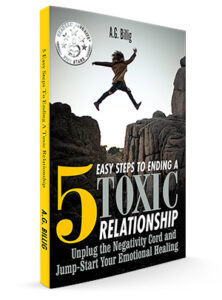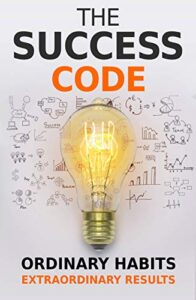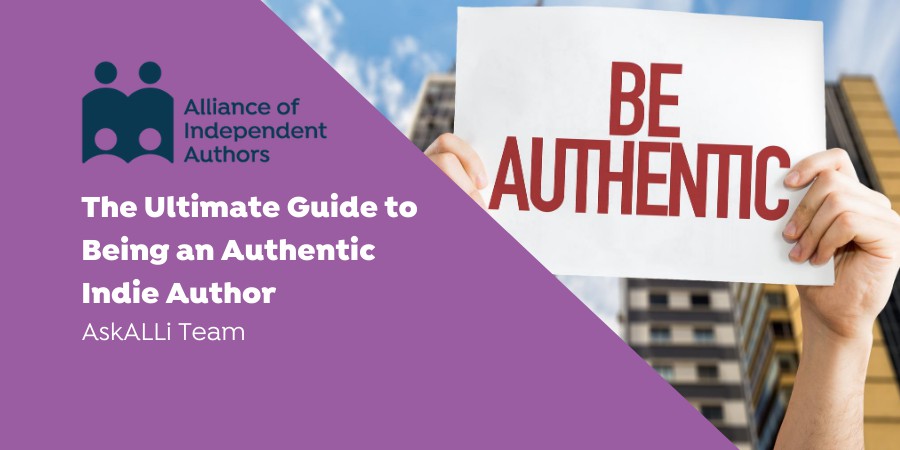The term “authenticity” is bandied around a lot when it comes to marketing and especially for authors. But what does it mean and how do you tap into authenticity without being discomfort or too much information? That’s what the Alliance of Independent Authors AskALLi team aims to answer today in the Ultimate Guide to Authenticity for Indie Authors. With thanks for the contributions from members and partners, in particular Connor Whiteley, A.G. Billig and Karen Ferreira.
The Ultimate Guide to Authenticity for Indie Authors: Know, Like and Trust Marketing
Know, Like and Trust (KLT) marketing is also known as “the progression your customers will take from discovering you to engaging with you or your business online.” Kate M. Gilbert, founder of WPMaster.me
The concept of getting your customer to “know, like and trust” you is a relatively old concept in marketing. It represents the journey taken by any customer–be it reader or otherwise–from initial encounter with your products through to purchasing them and becoming megafans.
Large corporations spend a lot of time and money trying to develop KLT for their brands… and often spectacularly fail. Authors, as wordsmiths, should find it easier but sometimes shyness, introversion, discomfort, and fear of over-revealing can put a barrier between us and our readers.
Small personal brands like authors have a real advantage over large corporations when it comes to KLT, one we shouldn't squander. But we retain the advantage only if we tap into those aspect of our books and ourselves. We all, as Walt Whitman said, “contain multitudes”. KLT gives us a way to be true to the part of ourselves that is most likely to connect positively with our readers.
The practice is simple. When marketing, from your website and email newsletters to advertisements and everything in between, choose words and actions that help your reader to… you've guessed it… know, like and trust your books and author brand.
KLT Marketing: Know Your Books and your Author Brand
The first issue you have is awareness: letting your readers know about you and your brand. When you're starting out, you're unknown. Therefore this is the first and primary marketing problem for every new author but it's not enough to just take actions that connect with readers (and customers for any other service or product you may offer), so they know you. This of course requires you to know yourself which aspects of your books and brand are most likely to move them to the next phases of liking and trust.
KLT Marketing: Like Your and Books your Author Brand
It's not surprising that “likes” are the currency of social media. It's one thing for a customer to be aware of you, but if they are to engage with you and your books, you need them to like some aspect of what you're doing–an aspect that they can expect to be replicated in your books. That's how you attract the right readers and lead them into reading and then purchasing.
For authors and books, liking can be much more complex than for other products. As a consumer, I either like peanut butter or I don't. As a reader, I may find a book's narrator or theme shocking or sombre–and still like the book and its author.
As an author brand, you can be outrageous with your readers, scare them half to death, or take them to dark places–but once something about the brand that appeals, in a marketing sense they “like” you, and you move together onto phase three: “trust”.
KLT Marketing: Trust Your Books and your and Your Author Brand
Trust is ultimately what you're after in your reader relationships. Once a reader or customer trusts you, they'll purchase your books again and again and they'll be open to buying higher value products and services from you too.
That's why this is the most important aspect of the trifecta and also the hardest to achieve. Trust, once earned, usually results in a long term relationship, so long as you don't do anything wrong. A trusting reader is an invaluable asset for an author. Having won it, don't mess up.
Trust can be broken if you say you'll send newsletters that you fail to send, for example. If you set launch dates that you miss. If a book breaks your brand promise to the reader or, in their mind, for whatever reason is “no good”
Anyone can make a mistake and you can get over a trust fail (or maybe two) if your reader knows you well and likes you enough but persistently failing to deliver, or committing a single, remarkable offence for which you fail to apologize, will break the precious trust bond.
The Ultimate Guide to Authenticity for Indie Authors: The Author Branding Challenge
Connor Whiteley is an author of over 20 books and writes sci-fi fantasy, nonfiction psychology (and he hosts The Psychology World Podcast) and Creative Entrepreneurship and he is a Human Branding Speaker and Consultant. Find out more about him on his website, Twitter and Pinterest.

ALLi member and author Connor Whiteley
As the world is engulfed in the chaos of the coronavirus and its various impacts, it reaffirms that change is the only constant. Change is what makes developing a human brand that readers can connect to, ‘know, like and trust' very important.
The pandemic has only increased advancements in technology and artificial intelligence, and it has caused the publishing industry to ‘rapidly’ adapt to the new world as bookstores closed temporarily. This is important to self-publishers because the pandemic has made traditional publishers adopt digital publishing and ebooks. Pver the next few years, we’ll see more and more ebooks in digital stores—resulting in more competition.
More significant than this trend are the advancements in artificial intelligence that are getting more impressive. The first AI written textbook was written in April 2019. The Verge reported this advancement and in his introduction, Springer Nature’s Henning Schoenenberger (a human), said books like this have the potential to start “a new era in scientific publishing” by automating drudgery.
Similarly in audio, DeepZen.io (an ALLi Partner member) is creating AI narrated audiobooks. I've listened to the samples and they sound very human.
None of this should scare authors. It presents us with possibilities that should be embraced and I’m looking forward to using the technology in the future. However, it makes author branding and authenticity more important than ever. With this new content being created by AI, how do we stand out in a crowded marketplace, especially one where readers don’t know what’s created by humans or by AI?
The answer is simple: human branding.
The Ultimate Guide to Authenticity for Indie Authors: Human Branding
Creating a human brand is the future of marketing as people look for brands they can connect to and affiliate with:
“A human’s greatest psychological need is to belong, and yet there is a belonging gap in the world – people are lonelier than ever.” Mark W. Schaefer, Marketing Rebellion.
This summarizes why human branding is important because readers want to connect with other human beings. But what is the best way to make your author brand “human”?
There are many ways to build a human brand, but here, I’ll discuss the magic of video.
The Ultimate Guide to Authenticity for Indie Authors: Why Video?
A lot of authors—including myself—hate the idea of doing videos. I understand, but you need to realize that video is truly magical because it's the only format—except live events and speaking—where the reader knows for sure that you are a real human.
As with podcasting, the fan can hear your voice and get to know, like and trust you. This is how Joanna Penn became a human brand to me as I got to know, like and trust her. But even though podcasts are more human than the written word, listeners still miss out on ‘truly’ connecting with you as they aren’t seeing your body language or face.
With photos on social media, readers and fans can see that you’re a real person, but they can’t get to know you as a human being, as they don’t know what you sound like nor what your personality is like. In a video, they can see the true you. They get to see your face, body language and voice, and as you talk and provide them with useful, entertaining or educating content.
If you've made your videos with KLT in mind, while still being true to yourself, viewers will come know you, and hopefully like you, and ultimately trust you enough to do business with you.
The Ultimate Guide to Authenticity for Indie Authors: What Video?
Before I give you ideas about what to create, I wanted to add that if you want to make videos and are scared (I know I am) then start slow. Just try recording yourself in a quiet place, script just one sentence. Once you've tried recording a sentence, try reading your bio out to yourself. Start small, build up.
It's also good to acknowledge that just like your first book draft, the first couple of videos will not be your best. That's why we edit and practice.
Videos Ideas for Fiction Writers:
Recently, I’ve been playing around with this idea for my email list and I want to make my fiction brand more human so these are some ideas you can talk about and adapt to your situation:
- Inspirations for your books. (Readers love this!)
- Your characters.
- Your world
- Dramatic readings of your blurbs!
- Film days out when you’re doing book research
Hopefully, you have some ideas and these ideas will give your readers a glimpse into your life and this will help your human brand!
Video Ideas for Nonfiction Writers:
As a nonfiction writer, I have many ideas about this topic, but the main takeaway is that you can do videos around your book, business or speaking topics. For example, for my writing brand, I can do videos on self-publishing, pros and cons of traditional publishing, book marketing and so on. Overall, your videos need to be entertaining, inspiring, educational or useful.
The Ultimate Guide to Authenticity for Indie Authors: Takeaways
- Human branding is important because of the changes in technology and the publishing industry.
- To build a human brand, you need to connect with readers, so they know, like and trust you.
- Video is great for human branding as it reveals the true you. That's also why it's so scary.
- Your videos need to entertain, educate, inspire or be useful to your audience.
If you want to learn more about how to create a human brand then you can check out Connor's book: Human Branding for Authors: How to be Human in an AI World Or theglobalauthor.com/humanbranding for lots of FREE content. Connor also has Human Branding Consultancy where you can get personalized help.
Embrace Your Authenticity

A.G. Billig
Deep thanks to A.G. Billig from the Self-Publishing Mastery podcast, for this next section. A.G. Billig is a published author, public speaker, and self-publishing expert. As a self-publishing expert and author coach, A.G. Billig uses her book marketing and publishing expertise to help authors become successful. Her key areas of expertise are brand building, traditional media and PR, book launch events and campaigns, public appearances (including TV and radio interviews) and metadata.
Let’s face it, you’re a storyteller. You may diligently apply yourself to your daily job of crunching numbers or designing software or gardening, whatever it may be but surely it doesn’t give you the same delight as knitting the words whispered by your muse into a riveting tale! It’s the difference between an organic signature Nepalese coffee versus a high-sugar, high-calorie Starbucks.
Your life experience and vision, your personality and the books you like to read, your dreams and hobbies, and yes, you being a vegan or not, inform your writing. It’s what makes it unique—aka very you, despite the thousands of other authors writing in your genre or on the same themes.
It’s this uniqueness that makes you stand out and ultimately incites the readers to click the “Buy” button.
The Ultimate Guide to Authenticity for Indie Authors: Be Like a Daisy

AG's book
Think of a white daisy in a field of red poppies (guilty as charged, I love daisies). You can see it from afar because it’s distinct from the other flowers. Its corolla and mild scent are one-of-kind. Now think of a different flower, your favorite one, or your favorite sport, anything that captivates you. Not only do they stir a positive emotion in your body, but also their names conjure a specific mental image in your brain.
As a storyteller who may want to dedicate your life to writing books and nothing else between 9 and 5, you need to build an audience. A daisy can do very well in that field of red poppies for the entire span of its life, but your book needs to be “plucked,” so to speak. The more you become a flower or your favorite sport, the easier it becomes for the readers to fall in love with you.
“Huh, that sounds weird, don’t think I’m up to it,” you might say, Let me explain.
It all boils down to finding out what is unique and authentic about you and expressing it in a way that is easily recognizable and also speaks to your readers (your target audience). An advertising maverick would refer to it as creating your author brand. You can think about it as your “public identity”.
Your Authentic Self Is Your Foundation
Your public identity or your author brand roots in your authentic self. You don’t have to come out about snoring at night unless you write a self-help book about the condition, but you can share with the world your sense of humor or gothic look, your passion for helping people, the challenges you’ve overcome and the lessons you’ve learned. In building your audience, your journey and the story behind your book play as big a role as the book itself. For example, J. K. Rowling inspires millions of authors with her success and her determination to follow her passion against all odds. Her courage, diligence, dedication, passion are wonderful character traits that resonate with readers from around the world. They shine in her books, through her characters, her actions, and public appearances.
In a market where thousands of books are published daily, authenticity — whether you’re a hero or a villain — is what draws readers to your books because it creates a powerful bond with them, one that will last throughout your career. It’s this candid, novel view of “the everyday” that allows you to birth something fresh into the world instead of limiting yourself to a pale imitation of somebody else. Few people in this world have the courage to be themselves, stand up for their truth, and go off the beaten path, yet deep down our hearts, we all crave it. Beware, though! Readers are as savvy at spotting a fake person as they are at recognizing bad prose. They will sense immediately that something’s off if you’re pretending to be someone you’re not because you think the path to success is paved with imitation.
Finding your Authenticity
In today’s world, we face a bit of a paradox, the educational system and modern society stray people away from their authentic selves, pressuring them to conform to certain models and rules to be accepted while simultaneously touting individualism! But rest assured, as a creator you’re probably more in tune with whom you are than 99% of the world population. So to uncover the deepest layers of your authenticity, you need to have an honest conversation with yourself and take a walk down the memory lane. Find out what brings you joy:
- What are your core values?
- What do you stand for?
- What do you believe in?
- How do you like to walk and dress?
- What is the legacy you want to create?
- Why do you write? And for whom do you write?
- Reveal yourself, for real!
Once you figure out the answers to these questions, you have a solid foundation for your author identity (brand) and your life. Embrace it! If you may, it is like figuring out what type of body or face you have in terms of shape. Once you do that, it is easy to choose the outfits that match it and embellish it versus just trying to fit in.
Do this and you can then easily pinpoint your main talking points (for media interviews, your blog and social media posts) and themes of your books. You can also start creating your website, visual assets, author logo and get a grasp of the overall look and feel of your books. Everything you put out is consistent, and readers will identify you (and with you) from afar, like a white daisy in a field of red poppies, ready to be plucked!
The Ultimate Guide to Authenticity for Indie Authors: Takeaways
- Your authenticity is the core of your author identity (brand) because it enhances your uniqueness in a crowded market
- True authenticity attracts readers like a magnet and helps you build an engaged and loyal audience
- You can uncover your true self by having an honest conversation with yourself and embracing what makes you you.
- Your authentic self informs and enhances the external expression of your gift: your writing style and voice, your author platform, and all your messages.
If you want to learn more about branding, please check my award-winning blog Self-Publishing Mastery. If you need help to build your author brand, check out our service or email me to get a personalized offer or learn more about my author branding coaching program.
The Ultimate Guide to Authenticity for Indie Authors: Case Study Karen Ferreira

Karen Ferreira, CEO of Get Your Book Illustrations
Karen Ferreira is the founder and CEO of GetYourBookIllustrations and Children’s Book Mastery. She helps self-publishing authors get amazing, affordable illustrations and provides them with the know-how to succeed in the industry with the yearly online Children’s Book Mastery conference, courses and author challenges.
How have you made your author business true to yourself?
I realized my business was making me unhappy and wasn’t true to my personality and decided to make a change. After that, I started evaluating each plan and action through a lens of, “Does this feel right for me?”
That brought me to the realization that there had to be more than one approach to achieve the results I was after, so I stopped persisting with approaches I hated, and I searched until I found solutions that excited me. Or, at the very least, that weren’t contrary to my personality. Prior to that I was using methods I thought had to be the right or the only solutions, although doing them made me miserable.
It’s worth noting this change has made me not only a lot happier, but my business has grown better than ever before since changing my approach.

Read Karen's book: The Success Code: How Ordinary Habits Can Produce Extraordinary Results
What tips do you have for making your author business true to you and therefore more authentic?
- It might sound cliché, but know yourself and be honest with yourself. Without that, you can’t make your business true to you.
- Learn to discern between fear or discomfort versus that which goes against your grain, against your inherent personality. The prior is often inevitable to achieve change. The latter is a no-go!
- Some people are fantastic at selling. They sell their solution really well. I’m not saying these are poor solutions or tools. Some of them are superb, but none of them are the only solution. Point being, if it doesn’t resonate with you, you will be okay missing out on that particular solution. Certain methods are better than others, sure, but the question isn’t, “Is it better?” The question is, “Is it better for me?
- Having successful mentors is not enough. Find mentors you resonate with! (This can include one-on-one coaching or courses or free content you’re learning from.)
What lessons have you learned about making an author business true to self?
- Being fearful doesn’t mean you shouldn’t do it, but feeling it’s wrong, painful, unethical, or absolutely not who you are, probably does mean you shouldn’t do it. Something that resonates with who you are may still scare you, but it will also feel right or exciting on some level.
- You can also evaluate if a certain path or method is right for you by imagining the future and succeeding with chosen method. If you “succeed,” but you’d only have created a monster that you have to keep feeding every day, then don’t go that route.
- Having a business true to yourself is way more fun and makes it way easier to succeed!




